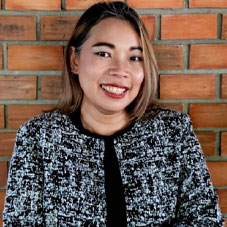
Raveewan Tanukit
Architect & Landscape Designer
According to an analysis conducted by Grand View Research, the global architecture industry is projected to attain a valuation of $336.1 billion by 2027. Despite the economic slowdown that resulted due to the global COVID pandemic, Thailand has shown resilience and positioned itself as one of the fastest growing economies in the Southeast Asia region. Also, the government has been pushing hard for infrastructure development to make the country a more desirable location for business trips. Owing to Thailand's thriving economy, an increasing number of prominent figures in the architectural field are coming to light and propelling the field forward. One such leader is Raveewan Tanukit, an architect and landscape designer at Nura Architects Engineer.
Embarking on a distinctive exchange with CEO Insights Asia magazine, Raveewan divulges the intricate facets of her journey as a prominent leader in Thailand. Let's delve into it.
Share with us your academic experience from Silpakorn University Thailand. What did you learn from the campus beyond academics?
Attending Silpakorn University has been a dream come true for me. It has helped me understand that all forms of art are interconnected, whether it's architecture, decorative art, or pottery. Even the little things are part of a grand scheme, and we should look beyond differences and find harmony by combining various artistic expressions. The university has helped me shape insight through a culture of collaboration. I have learned to collaborate with people without overshadowing others’ talents and contributions. Instead, we should work towards bringing out the best in each other and create a supportive environment that respects 'unity in diversity'. At Nura Architects Engineers, we aim to redefine the architectural landscape through innovative designs & sustainable practices
How do you find these experiences beneficial in your current role as the architect and landscape designer at Nura Architects Engineer?
In my role, initially, I wondered about focusing only on architecture, but my time at Silpakorn has taught me to consider the entire environment surrounding the building. My ability to integrate this perspective and approach problems holistically has allowed me to produce designs that instantly connect and resonate with our clients. Our projects are known to surpass client expectations, and this has been evident in the success our team has achieved over recent years through client referrals and retentions.
How do you foster a culture of learning in your team and help them showcase their potential in architecture and engineering capabilities?
I believe that the most important investment one can make is in people. Therefore, I always promote a culture of learning by encouraging my team to attend seminars and explore new career paths. I encourage open communication by welcoming feedback and inspiring them to learn from their mistakes. This is based on the life-changing events where challenges allowed me to transform my weaknesses into strengths.
How do you guide the company in attracting new market leaders to be a part of your vision and mission?
I lead Nura Architects Engineer by encouraging a proactive and creative culture. We explore every option in design and construction to deliver exceptional results, and creativity is at the heart of everything we do. I always make an effort to maintain a positive environment and treat our clients as partners to guarantee we create projects that we are proud of and never compromise on quality. We give a high priority to efficiency and quick decisionmaking since it's important in the business world to act swiftly and achieve project milestones.
What are your anticipations about the market going forward?
The world today is dominated by online platforms, but I still believe that old methods and offline media have a place, especially in our industry. The rapid shift towards digitalization can overshadow the relevance of engineering, architecture, and real estate and this worries me because these fields are the fundamentals of our built environment.
There is a risk that people might become less aware of the importance of high-quality, well- engineered projects as the market continues to evolve due to digital advancements. The skill and expertise that goes into construction and design may become less appreciated.
I hope Nura Architects Engineers will stand out as a reliable brand in the industry by acknowledging the efforts of architects and engineers and ensuring that our projects become benchmarks of quality and success.
Going forward, what is the future roadmap you have envisioned for your journey?
Even though I have always wanted to manage a nonprofit, I understand the practical difficulties and therefore I place a greater emphasis on technical details and the value of materials in our projects at Nura Architects Engineer. I want to highlight the importance of materials since they provide our work with a tangible connection. We aim to design more long-lasting and sustainable architectural solutions by choosing materials that respect local architecture, adjust to human demands, and are sustainable.
Raveewan Tanukit, Architect & Landscape Designer, Nura Architects Engineer
Raveevan Tanukit holds a Bachelor of Architecture from Silpakorn University, with a thesis on Thai Wine Center master planning, and a PG Certificate in Landscape Architecture and Gardening Design from Leeds Beckett University. Her experience includes roles at Oriental Vista, Ocean Villas Group, Able Architects, Colin K. Okashimo and Associates, Linex Design and Naga Concepts.
Hobbies: Reading, Traveling
Favorite Book: The Shopaholic Book series by Sophie Kinsella
Favorite Travel Destination: The Middle East



.png)